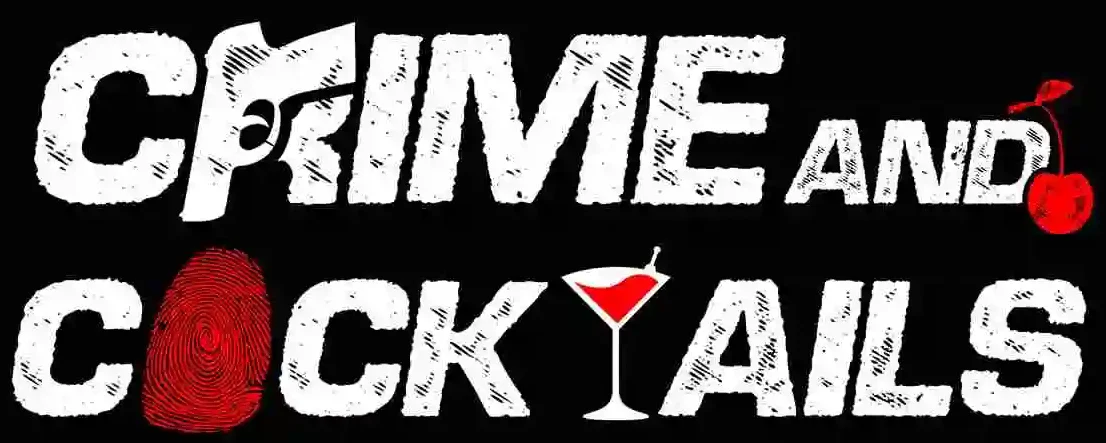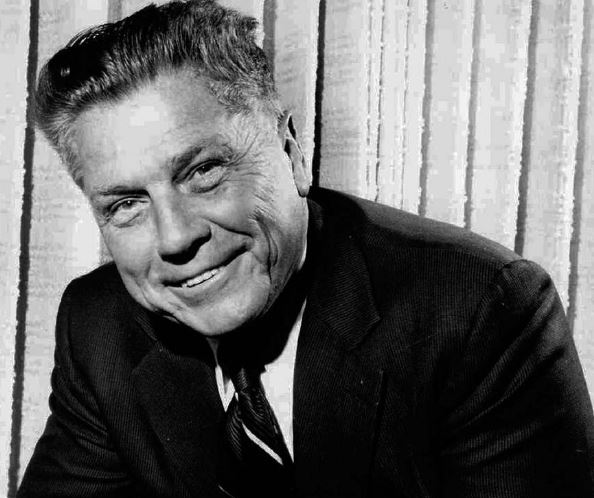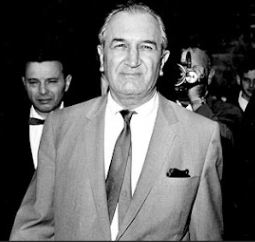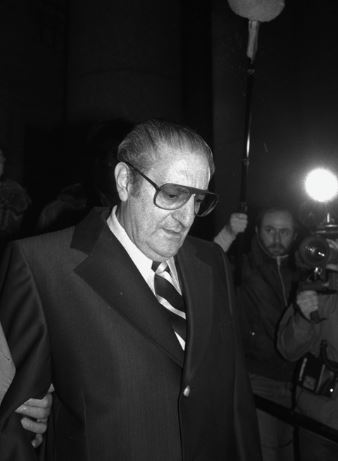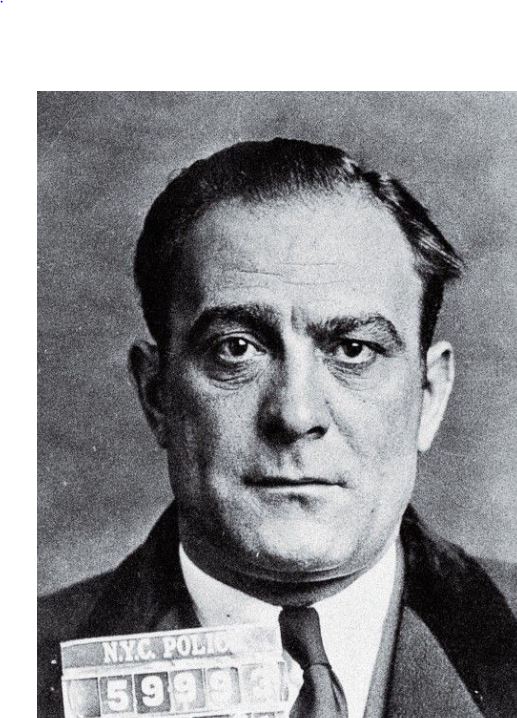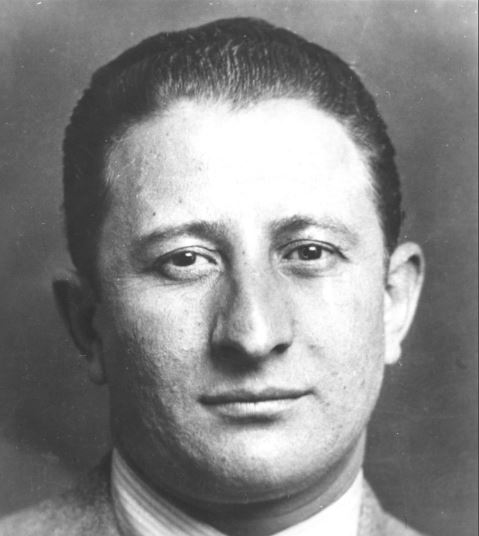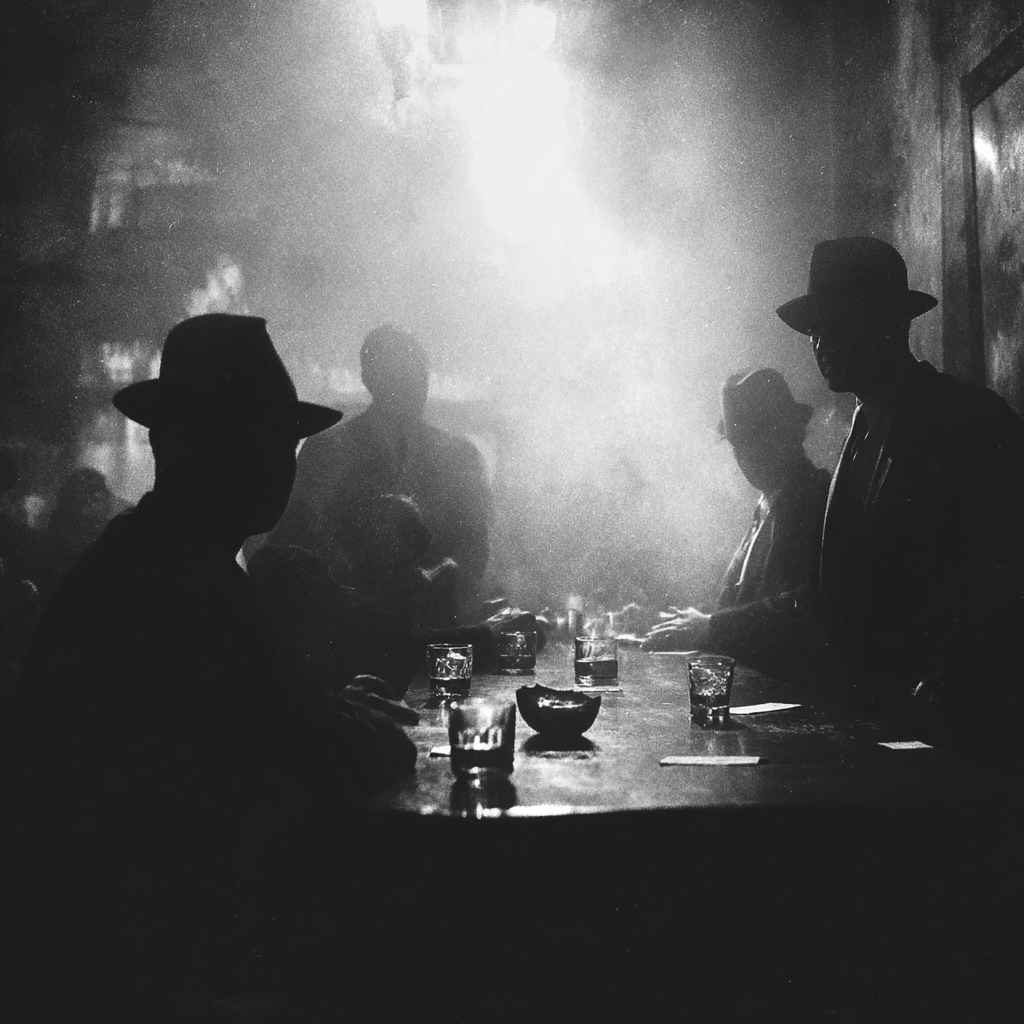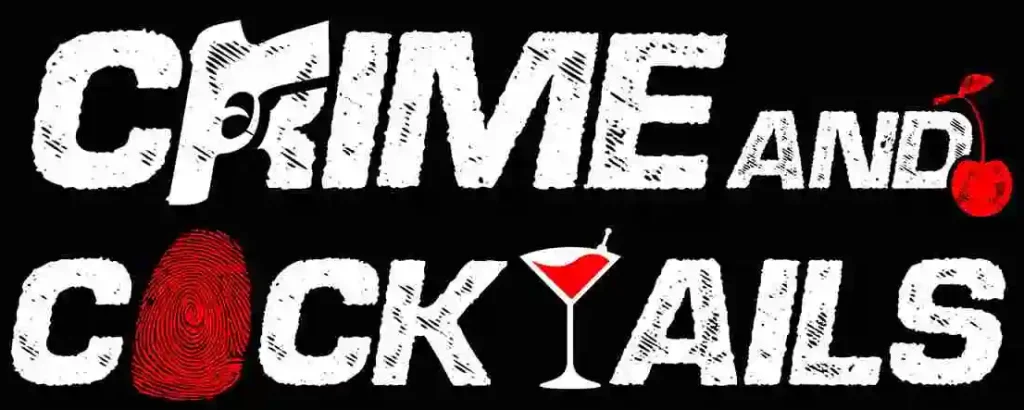The power of the Presidential pardon is as allusive as the goose that laid the golden egg, but substantially more valuable. The Constitution’s Article II grants the President the “power to grant reprieves and pardons for offenses against the United States.” But over the past 225 years, a number of pardons have certainly raised eyebrows, especially when it comes to “family associates.” But not all recipients achieved “life, liberty and the pursuit of happiness” as stated in the Declaration of Independence. Each of these pardon tales is covered in muck and mire.
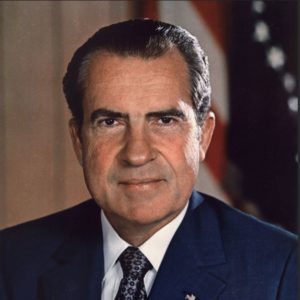
Louis “Lepke” Buchalter: The Murder, Inc. Pardon
In the 1930s, if the Syndicate needed someone “taken care of” Louis “Lepke” Buchalter was given the contract. He would “delegate” the work to his trusted “Murder Inc,” lieutenants, and they would choose which of their professional assassins would be given the assignment. The number of hits this crew completed will never be known, but estimates have gone as high as a thousand murders nationwide. This team used ice picks, tire irons, nooses, and meat cleavers. The victims were found only if they needed to be discovered to set an example, otherwise, they simply vanished.
But murder contracts were not the only set of talents on Lepke’s resume. He was a union manipulator, labor racketeer, and an extortion specialist. Not reticent about expanding his horizons, Lepke established a nationwide narcotics ring.
With indictments piling up, Lepke went into hiding for two years. He surrendered to J. Edgar Hoover after being persuaded by the “boys upstairs” that it would be in his best interest.
Lepke was convicted on federal narcotics trafficking charges and sentenced to 14 years. He was also sentenced on April 5, 1940 to 30 years to life in state prison on labor extortion charges. To add to the hit parade, on November 30, 1941, Lepke, along with two “Murder, Inc.” co-defendants Emanuel “Mendy” Weiss and Louis Capone, were found guilty in the first degree for the murder of Joseph Rosen. The three were sentenced to the electric chair.
But now, New York Governor Thomas E. Dewey, who had said that Louis Buchalter was “The worst industrial racketeer,” was not only asking – but demanding – that President Roosevelt grant Lepke a Presidential pardon. Dewey even took this ultimatum to the press when his requests were ignored by the Roosevelt administration.
Because Lepke was first convicted of the narcotics charge, U.S. Attorney General Francis Biddle made it clear, Lepke had to serve 14 years before he could be turned over to Dewey for execution in the Rosen murder.
Dewey, having no authority over Federal prisoners, continued to press for Roosevelt to pardon Lepke on the “Federal” charges. Dewey would not execute Weiss and Capone if Lepke was still alive.
After a year and a half of legal wranglings and dark political controversies, Louis Buchalter received his Presidential Pardon. Lepke, Louis Capone and Mendy Weiss were electrocuted at Sing Sing prison on March 4, 1944.
John Factor a.k.a. Jake “The Barber” Factor: The Beauty of a Pardon
Chicago in 1933 wasn’t a good place or year for John Factor… or was it? In May, his 19-year-old son Jerome was kidnapped and held for an undisclosed ransom. And now, two months later on July 1st, John himself was kidnapped at gunpoint as he was leaving The Dells roadhouse with a party of friends. Masked men covered John’s face, shoved him into a car, and sped off.
Clearly, the kidnappers knew that John was the half-brother of Max Factor, the man who created the very successful Max Factor make-up line used by all the movie studios. And clearly, the kidnappers knew that John himself was incredibly wealthy due to his exceptional financial acumen when it came to stocks. And didn’t John also come back from Monte Carlo rolling in dough?
Once released a few weeks later (for an undisclosed sum), John, evidently traumatized, explained that the kidnappers had kept their faces covered and he didn’t recognize any of their voices.
Yogi Berra once said, “That’s too coincidental to be a coincidence.” Could that be true about John?
Consider:
- John was a good friend of Frank Nitti, the leader of the Chicago Outfit.
- John’s financial “expertise” was from a massive stock fraud he established in England where several of the victims were the Royal family. He netted over $8 million dollars.
- Escaping the British authorities, he ran to the Monte Carlo Casino where he rigged the tables and swindled them.
- He escaped Monte Carlo and ran to the U.S. In Chicago, “in absentia,” Factor received a 24-year sentence from England. But right before the court hearing to extradite him happened, his son was kidnapped. Then John himself was kidnapped.
And low and behold, just as extradition proceedings were moving forward, John suddenly remembered what his kidnapper looked like. He accused Roger Touhy of the crime. Touhy happened to be the mortal enemy of the Chicago Outfit. The fact that Touhy was not in Chicago when John was kidnapped, why let a little thing called “truth” stand in the way? And once Touhy was convicted of the kidnapping, the necessary U.S. legal authorities advised England that Factor had to stay in the country due to the legal consequences of the Touhy conviction.
Fast forward to 1959 when Touhy was released from prison. He started to write his memoirs stating he never kidnaped Factor and that he was framed by the Outfit. Touhy died three weeks after his release – shotgun blasts have a way of permanently killing the writing of a memoir, among other things.
Scamming the Royal family was not easily forgotten, and now, England started the ball rolling again to deport John Factor to stand trial on fraud charges.
“Jake the Barber” Factor, being the philanthropist that he was, made considerable donations to the John Kennedy presidential campaign. How nice that he provided a slush fund for the President after the Bay of Pigs fiasco. And that generous donation of $250,000 to a clinic for mentally retarded children? Possibly the Joseph P. Kennedy Jr. Laboratory for Research on Mental Retardation? Coincidence?
On December 24, 1962, President Kennedy gave John Factor a Presidential pardon. This occurred two weeks before Factor’s hearing at the Immigration and Naturalization Service. With his Pardon, Factor could no longer be deported. He died in Los Angeles in 1984 after a long illness.
Merry Christmas from Richard Nixon – You Have Been Pardoned!
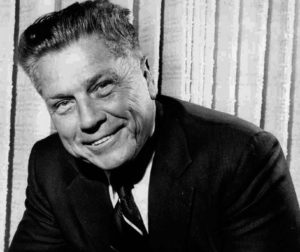
Not all Presidential pardons are “Get Out of Jail Free” cards – some have conditions, which is exactly what Jimmy Hoffa found out.
Hoffa was convicted in two separate trials, the first for jury tampering (eight-year sentence), and the second trial for conspiracy plus mail and wire fraud (five-year sentence). His thirteen-year sentence started on March 7, 1967.
From prison, Hoffa still maintained the position of President for the Teamsters union (IBT), with Frank Fitzsimmons as acting president. With Fitzsimmons heading up the IBT, it appears the “Family” had free reign to the Teamster’s pension fund; they needed it to stay that way. First, Fitzsimmons was elected as Teamsters president on July 9, 1971 when Hoffa resigned from his position. Secondly, this powerful union reached out to the White House and indicated that it would be willing to endorse Nixon in 1972 (IBT typically endorsed Democratic nominees) IF the President would be willing to do something for them…
Hoffa received his pardon on December 23, 1971, but with the stipulation that he would “not engage in direct or indirect management of any labor organization” until at least March 1980.
Upon release and almost immediately after, Hoffa argued that he never agreed to this stipulation, nor did he sign anything. In February 1974, while on a national talk show, Hoffa advised he would be seeking re-election to the presidency of the IBT in the 1976 elections.
That election never happened. Jimmy Hoffa disappeared on July 30, 1975.
DITTO – Merry Christmas from Richard Nixon – You Have Been Pardoned!
Angelo “Gyp” DeCarlo was a well-loved individual, not only by the key politicians in his home state of New Jersey, but by his fellow mobsters, and several well-known entertainers. On a wiretap in the 1960s, Harold “Kayo” Konigsberg, mob enforcer asked him, “Will you tell me why everybody loves you?” DeCarlo’s answer was simple, “I’m a hoodlum. I don’t want to be a legitimate guy.”
Federal prosecutors did not share this love. They called DeCarlo a “violent… homicidal… and a man who orders executions.”
Successfully prosecuted for conspiracy to commit murder and extortion in March of 1970, this “loved” individual was sentenced to 12 years in a federal penitentiary. He was promptly shipped to serve his time in Atlanta.
To improve prisoner morale, Frankie Valli from the “Four Seasons” performed for the Atlanta prisoners. The Valli/DeCarlo relationship was well documented in the movie “Jersey Boys.” According to FBI files, DeCarlo asked Valli to get in touch with the mobster’s good friend Frank Sinatra and see what he could do for him.
With Richard Nixon’s re-election coffers not where they needed to be, Sinatra was more than willing to help out. Sinatra made a $100,000 contribution, in cash, to the re-election fund. For equal measure, it has been said that DeCarlo made a sizable contribution to this “worthwhile” fund. Because Sinatra would not be outdone, the crooner made an additional $50,000 contribution on December 21, 1972.
Angelo DeCarlo was pardoned on December 23, 1972.
Senator Henry M. Jackson stated, “It is ironic that at the same time the Justice Department makes claims of a nationwide crackdown on organized crime and launches difficult and costly trials to convict mobsters such as DeCarlo. The process of justice is frustrated by the ability of these men to elude the full weight of penalties imposed on them. Something smells and I want to know what.” A full investigation was launched… but nothing ever came of it.
FBI reports state that DeCarlo went back to his old underworld routines, but his freedom was short-lived. DeCarlo died on October 20, 1973 from health issues.
DITTO – Merry Christmas from Richard Nixon – You Have Been Pardoned!
Angelo “Gyp” DeCarlo was a well-loved individual, not only by the key politicians in his home state of New Jersey, but by his fellow mobsters, and several well-known entertainers. On a wiretap in the 1960s, Harold “Kayo” Konigsberg, mob enforcer asked him, “Will you tell me why everybody loves you?” DeCarlo’s answer was simple, “I’m a hoodlum. I don’t want to be a legitimate guy.”
Federal prosecutors did not share this love. They called DeCarlo a “violent… homicidal… and a man who orders executions.”
Successfully prosecuted for conspiracy to commit murder and extortion in March of 1970, this “loved” individual was sentenced to 12 years in a federal penitentiary. He was promptly shipped to serve his time in Atlanta.
To improve prisoner morale, Frankie Valli from the “Four Seasons” performed for the Atlanta prisoners. The Valli/DeCarlo relationship was well documented in the movie “Jersey Boys.” According to FBI files, DeCarlo asked Valli to get in touch with the mobster’s good friend Frank Sinatra and see what he could do for him.
With Richard Nixon’s re-election coffers not where they needed to be, Sinatra was more than willing to help out. Sinatra made a $100,000 contribution, in cash, to the re-election fund. For equal measure, it has been said that DeCarlo made a sizable contribution to this “worthwhile” fund. Because Sinatra would not be outdone, the crooner made an additional $50,000 contribution on December 21, 1972.
Angelo DeCarlo was pardoned on December 23, 1972.
Senator Henry M. Jackson stated, “It is ironic that at the same time the Justice Department makes claims of a nationwide crackdown on organized crime and launches difficult and costly trials to convict mobsters such as DeCarlo. The process of justice is frustrated by the ability of these men to elude the full weight of penalties imposed on them. Something smells and I want to know what.” A full investigation was launched… but nothing ever came of it.
**** Questionable pardons become a permanent blemish on that President’s legacy. Such pardons have been and will continue to be suspected and scrutinized for decades, long after that President is out of office.
